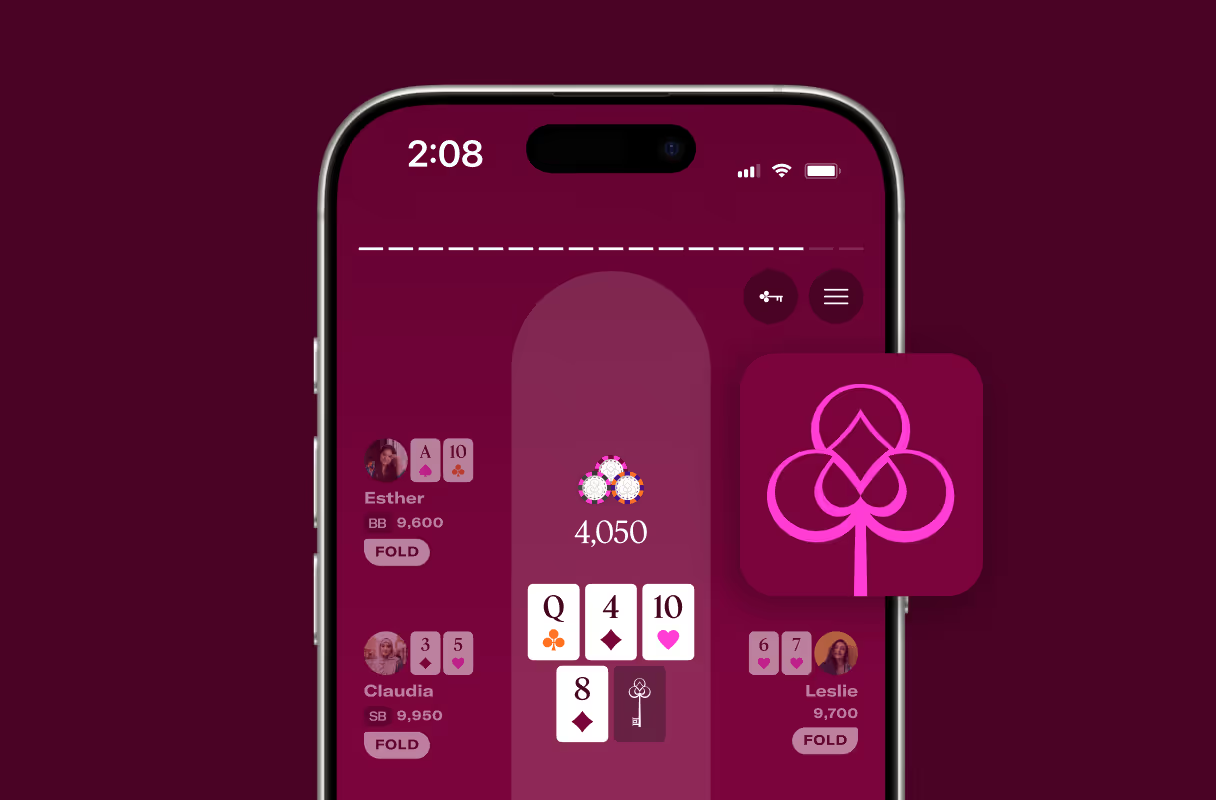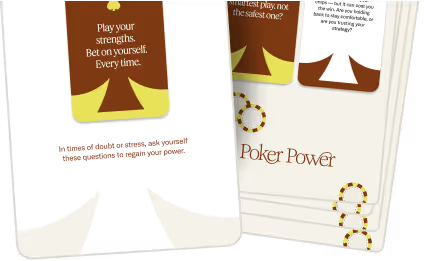A saying heard at many poker tournaments, especially in conversations with players who didn’t win that last tournament, is “on to the next one.” On to the next one, and its positive-vibe, hashtag-friendly acronym OTTNO, is defined as “expressing a sense of resilience or aspiration for continued success.”
It doesn’t mean the tournament they lost didn’t matter. What it does say is that they won’t dwell on the disappointment of the loss, but move on, reflect on errors and potential improvements, brush up on some poker skills, and try those new strategies in the next tournament.
Poker is a game of wins and losses. To win some, you have to lose some. Those are the odds in poker and in life. The skill part of this process is to understand how to see the bigger picture, assess the good and the bad, and move on to the next game. Players then bring more experience, poker knowledge, mental notes about opponents, and confidence in the odds to the next tournament.
Each rejection or loss is a lesson
Some people dabble in poker – play a game with family, for instance – and never play again. But others keep coming back to the game because of the competition, the challenge, and the potential.
A seasoned poker player's results would probably show a roller coaster of a chart. The goal, though, is to improve the wins in quantity and quality over time.
Whether you win a tournament, finish at some point in the money, or bust before the money and walk away empty-handed, you take information with you. Since poker is a game of information, players leave a game with mental (and sometimes handwritten) notes, memories of hands that went wrong, questions about the proper strategy in a particular situation, and observations on particular opponents. Most importantly, they walk away with lessons learned about themselves, their strengths and weaknesses, and the willingness to improve.
In the end, it’s not personal. It’s simply time to move on to the next one.
Navigating a tough business world
Few people enter the business world and move straight to the top without hurdles. Most successful businesspeople can reflect back on low-paying jobs they took until the right opportunities came along. They recall rejections and poor performances in interviews. What makes those stories so common among successful people in the business world is that they learned from those losses and rejections.
Whether a person is looking for a particular job, returning to the workforce, or leaving college to join the work world, she will likely face rejection. While this is not pleasant for anyone, there are ways to turn those rejections into lessons that improve their chances next time.
- Rarely move all-in. That is a move reserved for the best opportunities when the odds are clearly in the person’s favor. Risk is necessary, but keep something behind in order to keep playing.
- Research before meetings and interviews. Know everything possible about the company, the interviewer, the average pay, and what makes you the perfect fit. Bring all the chips to the table. Put your work on the table, complete with quantifiable accomplishments and real-world experiences that make you the right person for the job.
- Keep a poker face. Tell the interviewer only what they need to know. Whether the interview goes well or not, thank them for the opportunity, collect the lessons learned, and set up another one.
- Be somewhat flexible. Know that unique questions and offers might come, and be prepared to answer or at least kindly wade through those waters.
- Understand there is always another opportunity ahead. Walk in with confidence, and walk out the same way. If that one doesn’t have a positive result, there will be another one.
Luck versus skill
A winning poker hand does little good without a winning approach. Anyone can get lucky and pick up a winning hand. The odds show it's bound to happen. But a winning approach – acquiring the skills to play poker – equals long-term success. Players who get lucky might win once, but players who compete with skills and preparation will win in the long run.
There are always people who can luck into a job, but you don't want to be that person. It’s always better to be the person that everyone knows is good at the job.
Poker is more than just a game; it's a game changer. If you pay attention, it will give you all the tools you need to succeed. Each failure is an opportunity to learn. Take your next seat with confidence. Learn the power of poker with Poker Power.





